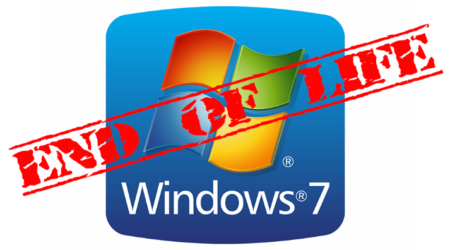
Microsoft will terminate support for Windows 7 on 14th January 2020.
Windows 7 is currently in a phase Microsoft describes as “extended support” but by 14th January 2020 all support ends and no further security updates will be issued.
In this blog we have provided answers to some of the most common questions regarding “end of life support” and what it might mean for you.
What does “End of Extended Support” mean?
End of extended support does not mean that Windows 7 will stop working, but critically, end of support does mean that Microsoft will stop developing the product and there will be no further security updates.
When should a business start the upgrade process?
Now is the time to consider the cost of upgrading or replacing any device running Windows 7.
Due to the early end of life date in 2020, any upgrades or replacements should be in place for several months before the January 14 end of life date.
Why does it take some businesses so long to adapt to end of life announcements?
Many reasons, all of which will be familiar to any business owner:
– Time and the distraction required to update and upgrade computers, particularly for small and medium-sized businesses.
– The use of important legacy software that relies on an outdated operating system.
– Older equipment that may not respond well to the system requirements necessary for an upgrade to a new operating system.
How easy is it to upgrade to Windows 10?
This depends on the age of the device. With minimum specifications needed to run a Windows 10 Operating System, many older devices won’t be suitable for a straight upgrade to the Windows 10 Operating system.
We recommend that devices are replaced every 4 years; with the cost of the upgraded Windows 10 license and professional services associated with the upgrade process, this might be the best time to perform a refresh of older machines.
Upgrading to newer, faster PC’s will also improve productivity and overall job satisfaction.
What will happen if businesses don’t upgrade their systems?
Based on the past experiences with the updates to Windows XP, many devices will continue to operate perfectly fine on Windows 7. However there’s a but and its a BIG BUT. Several significant ransomware attacks (most notably WannaCry) targeted legacy systems still running XP. As hackers realise how many potential cybercrime victims are still running Windows 7 beyond January 14, 2020, they’re sure to turn their attention in that direction.
Although businesses will still be able to use Windows 7 after the end date, the lack of support and end of security options suggests it’s not a good idea to continue with the OS.
If you are concerned about Windows 7 end of life, then why not reach out to one of our team?